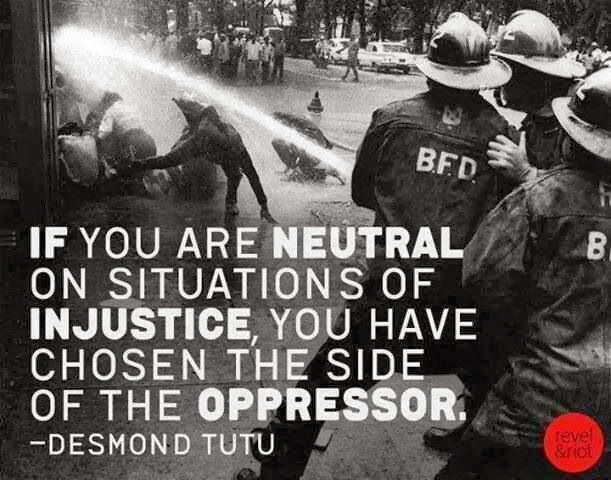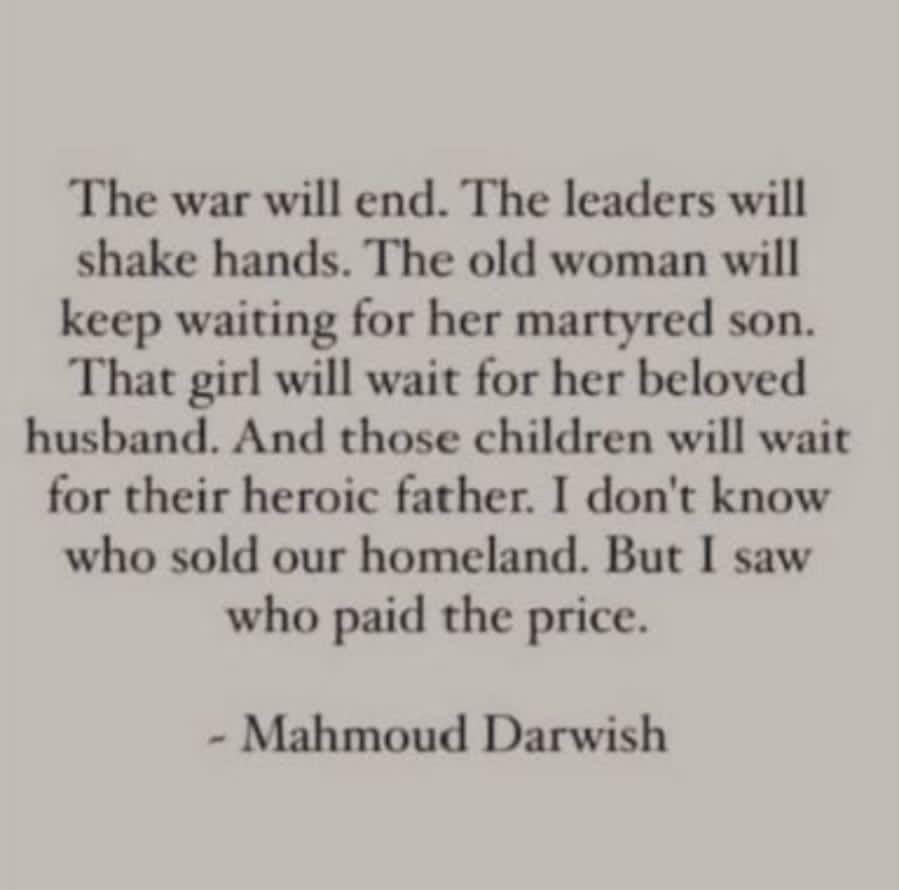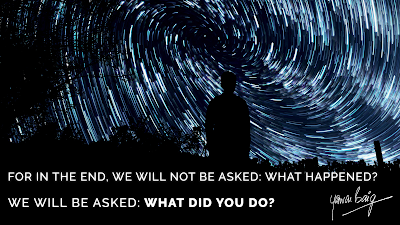19 children dead. Should I be thankful that in Buffalo, Uvalde or in the many instances of mass shootings that happen as regularly as rainfall in America, none of the casualty lists had the name of one of my loved ones? Or should I see every single one who died as my loved one? I believe that is the root of this whole matter. The Qur’an is clear as daylight in this, where Allah said:
Ma’aida 5: 32 …. if anyone killed a person not in retaliation for murder, or (and) to spread mischief in the land – it would be as if he killed all mankind, and if anyone saved a life, it would be as if he saved the life of all mankind.
‘Retaliation’ refers to the judge sentencing a murderer to death after due process of law and is not license for vigilante action. Killing one innocent person; no matter his/her faith, race, ethnicity, gender, color, or anything else; is equal in Islam to wiping out all mankind. And saving one life is equal to saving all mankind. What can be clearer than this? It doesn’t matter if the one killed or saved was Muslim or anything else. The Qur’an says, ‘person’ i.e., human life. That is the most important and first principle in Islamic jurisprudence and takes precedence over everything else. My question to my fellow Americans is, ‘How many more must die before we understand that sanctity of human life must take precedence over everything else in a civilized society? Does the body count justify our obsession with guns?’
In the words of the Nobel Prize winner who didn’t even come to collect his prize, Bob Dylan:
Yes, ‘n’ how many ears must one man have
Before he can hear people cry?
Yes, ‘n’ how many deaths will it take till he knows
That too many people have died?
The answer, my friend, is blowin’ in the wind
The answer is blowin’ in the wind
I believe it is not guns but something deeper and more malignant. The problem is that we have created a society that is based on worship of the self. Our supreme law is, ‘I like it, so it must be good.’ How what I like may affect others, whether others like what I like or not, is not something that I am prepared to consider.
The first thing that I remind myself and you is that loss, bereavement, grief, and pain is an intrinsic part of life. This is not news to you of course. We all know this, but it is good to remind ourselves about this when we are facing bereavement and grief, that what happened is inevitable and would have happened one day. I say that because the only incontrovertible truth of life is that we will all die one day. Some go early. Some go later. But all of us will go. Allah reminded us about life:
Baqara 2:155-157 And We will surely test you with something of fear and hunger and a loss of wealth and lives and fruits, but give glad tidings to those who are patient, Who, when disaster strikes them, say, “Indeed we belong to Allah and indeed to Him we will return.” Those are the ones upon whom are blessings from their Lord and mercy. And it is those who are the guided.

In Islam our way is to remind ourselves that it is okay to shed tears as much as we want, but we don’t complain or express despair. We accept that all of us belong to Allah and that all of us will return to Him. These are words we say even when we feel sad at the memory of a loss we faced in the past or when we miss our loved one or the life we had planned with them. We remember that our patience is being rewarded more than we can imagine. We remember that sadness doesn’t last forever even if the memories do.
In Gestalt psychology there is a saying: “What you resist, persists. What you accept, is transformed.” We resist because we associate something negative with what has happened. In the case of bereavement, to accept is not to say that what happened was good, but to deliberately focus on all the happy memories associated with that person, who is no longer with us. We remember that life is a struggle and those who are successful are those who overcome the struggle they face. Who do you respect more? Someone who lives a charmed life with every happiness and so was never depressed or suicidal. Or someone who faced hardship, loss, bereavement, fell into deep depression, became suicidal, on the brink many times, but then, came out of it, stronger, wiser, full of compassion, kindness, and a heart full of love for others? Dumb question, right? Hardship is a test. Those who overcome it, graduate into another higher stage of life.
Journal to face and deal with your emotions so you don’t become hopeless. Writing to process your feelings is a powerful technique to help deal with your emotions and your grief. Write out your thoughts and confusions to sort them out, journal about your feelings from day to day, use gratitude journaling to focus on the blessings even at such difficult times, write letters to your loved one as if you are talking to them. All of this helps deal with the emotions and grief just as talking or counseling.
Psychiatrist Elizabeth Kubler-Ross in her research with terminally ill patients wrote in her book, ‘On Death and Dying’ something she called, SARAH. When I counsel people, I remind them to make friends with SARAH. This acronym refers to the five stages that someone who gets news of terminal illness goes through. The same happens to people who face death of a loved one, divorce, loss of employment, business failure, even critical feedback. The stages are:
- Shock/denial: where you can’t believe that it happened or is happening to you. You refuse to believe it. You feel trapped and look for a way to escape. You want to wake up from the nightmare and discover that though you are sweating, you are safe in your bed in your own bedroom. Until you realize that you are awake, and it has happened to you.
- Anger/anxiety: anger is the body’s natural reaction to threat and often there is no greater threat than the loss of someone you love or the loss of the way you envisioned life would be. Anger can also feel powerful during times when we feel powerless. You may experience nervousness, palpitations, restlessness, irritability, and shortness of breath. You are looking for someone to hold responsible, someone to blame. You may find someone and may be justified in that. Or you may just strike out and even hurt someone who was not responsible for your loss.
- Rejection: This stage is characterized by an overwhelming desire for life to return to the way it was. Depression is a real possibility here. You may feel a loss of energy, and cry more often than you usually do. It may also feel like you have less motivation and find less enjoyment in activities you used to love. You may refuse to meet people, seclude yourself, and in the case of terminal illness, seek second, third and fourth opinions. This stage can feel as though it’ll stretch on forever and acceptance (the reality that this person is physically gone, and that this new reality is the permanent reality) may seem impossible.
- Acceptance: this is when you know that the emptiness is now a part of you, and it feels somehow as if it belongs. This does not mean that you’re okay with what happened. The loss of someone you love will never feel okay. But gradually you will be able to come out of seclusion and start your normal routines. The goal in this stage is to learn how to live with this loss and create a new normal despite the huge piece that is missing. Routines help enormously. So does aerobic exercise.
- Help: Through prayer, counseling, therapy, and other means to learn to come to terms with the bereavement and think about life ahead. Friends help enormously. People to share the grief with, to talk to. People who will listen to you. Just be there and help you come to terms with your loss.
What to do when a friend is bereaved?
- Shock: If you are helping a friend through these stages of grief, here are some reminders which will help you. When you encounter their ‘shock’, remain silent. Stay with them. Speak little if at all. Just be with them. They may need medical attention. They may need water, maybe physical warmth. Maybe they need distance. It is essential that you are very sensitive to their needs and give them what they need and not what you think they should have. Very important to remember that grief can be an individualized and unpredictable experience and no two people’s experiences will be the same. One must remember this while helping someone through their grief and not expect them to behave in the same way as someone else. Accept their difference and respect that. Give time, have patience, and just be there for them.
- Anger: When you encounter their anger, remind yourself that you are not the target, even if it looks like that. The anger is at what happened and when they are hitting out, just stay out of the way. Never, ever, react. Don’t preach or justify. Remain silent and supportive. Don’t hurry them. Don’t tell them what they should or shouldn’t do. Water, coffee, blanket, silence. And pray for them.
- Rejection: when they reject what you say, remember that they are not rejecting you. They need time to accept their loss. They want life to go back to how it was. As you do. But you know that is not going to happen. They will also get there but it will take time, because they are bleeding, and you are not. Give them that time. You can’t hurry them. Being there for them is the most valuable thing that you can do for them. Take over some of their routine chores. Try to draw them out gently into things that will serve to distract them from their grief. This may include speaking about the good times you had with the person who passed away. But do that with great sensitivity because it can sometimes go wrong. Timing is everything
- Acceptance: this is the stage when you can do the most and be most beneficial. Kindness, compassion, sensitivity to the need of the bereaved person. Once again don’t hurry, don’t push. Let it happen at its own pace. Everyone has their own pace. Respect that and be there.
- Help: now is the time when you can help them yourself if you can or help to find qualified helpers. Pray with them, stay with them. There is no formula. You will need to respond to what emerges as they come to terms with their new reality minus the person who meant all the world to them. But if you do it right, you will see them grow stronger and more mature and you will see them smile once more.
Finally, ask the most important question of all: What are we going to do to ensure that this never happens again?

As I write this the total number of Americans killed by gun violence until June 22, 2022 (today) is 20,735. That is just six months of this year. In 2021 (last year) there were 693 mass shootings (where 4 or more people died) in the US.
I checked and found that the days in 2021 were still 365. Do the math. Last year (2021), 21,000 people died because of gun violence in America. Does this body count justify whatever so-called ‘right’ we think we are upholding? In a society where our taxes pay for law enforcement, why must we carry guns to defend ourselves? I am not against gun ownership, just as I am not against car ownership. I am against unfettered ownership of something which has the potential to destroy the lives of others in the hands of someone who is not capable of handling it. If a mature, mentally stable person without a criminal record, trained to handle a weapon, wants to own a gun for hunting or a small arm for personal safety because of the special circumstances he/she may be living in let them do so. But what is the justification for a military style, assault weapon being sold to someone who is mentally unstable or sick, has a criminal record and is highly likely to use that weapon to kill others, only because we will not accept background or medical checks?
I wonder if any of those holding the signs justifying unfettered gun ownership by anyone without any background or mental health check, also held the body of their little child, dead from a bullet in the heart shot by someone like themselves, who believed in the unfettered right to bear arms. What more can I say?
https://www.thetrace.org/2021/12/gun-violence-data-stats-2021/
https://www.gunviolencearchive.org/
